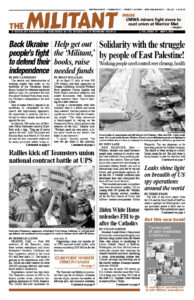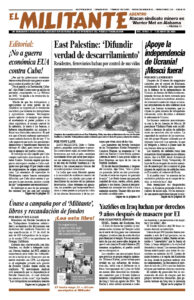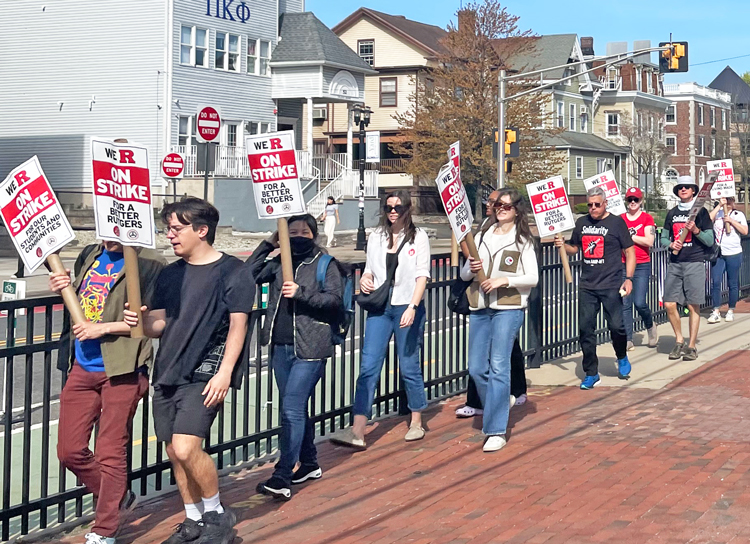NEWARK, N.J. — Spirited picket lines went up April 10 at Rutgers University’s three campuses in New Brunswick, Newark and Camden. The strike by 9,000 faculty members — the first in 257 years — is the biggest public sector strike in New Jersey’s history.
After five days on the picket line two of the three unions announced a framework agreement winning significant wage increases for part-time faculty and graduate students and a return to work on April 17. Outstanding issues are still being negotiated. The smallest union, representing medical faculty, has not reached an agreement.
The three striking unions, which had been working without a contract since July 1, are Rutgers American Association of University Professors-American Federation of Teachers, which represents full-time faculty, graduate workers, postdoctoral associates and some counselors; the Rutgers Adjunct Faculty Union, which represents part-time lecturers; and a division of AAUP that includes faculty in the biomedical and health sciences at Rutgers’ medical, dental, nursing and public health schools.
Picket captain Soili Smith told the Militant the main issues are equal pay, health insurance and job security. Smith described how the university has the faculty divided into tiers, with vastly different wages and benefits. Part-time adjunct lecturers, for example, don’t have health insurance, and are paid from $5,799 to $7,234 per course.
“I’m trying to live in the Newark area but must have several roommates,” said Christopher Terra, a fourth-year teaching assistant in earth and environmental science. “I don’t have a livable wage.”
Ajua Kouadio said, “Graduate student workers like myself get paid $30,000 per year. We are expected to be available at all hours. Our private time is not respected. I get calls at all times of the day and night.”
Chris Hoeppner, Socialist Workers Party candidate for mayor of Philadelphia and a union rail worker, joined the picket line in Camden April 13. He spoke with David Marchino, a first-year graduate student on strike for the first time. He said he agreed when his professor said, “They say we are shutting down education, but the real education is out here on the picket line.” Marchino subscribed to the Militant.


